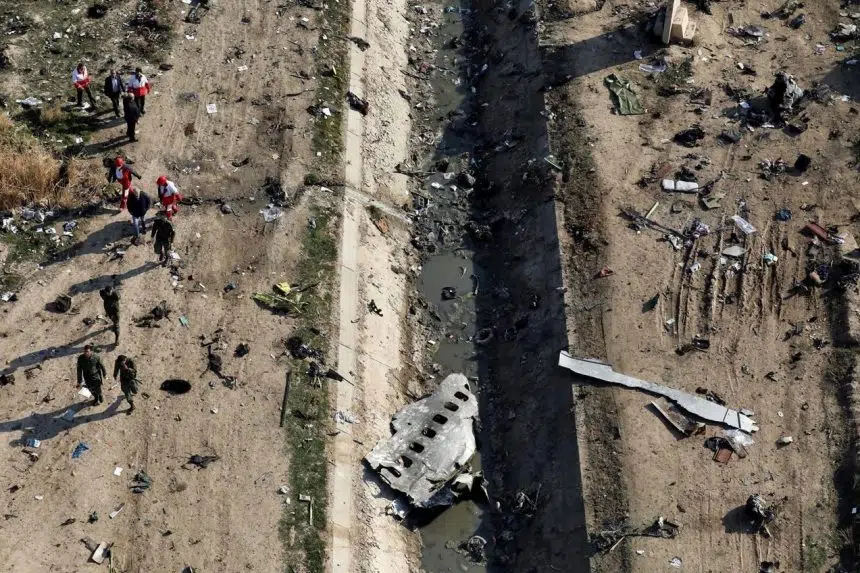Distance, political tensions and the violent nature of the plane crash in Iran mean the victims’ families won’t be able to follow their traditional rituals that call for a quick burial.
All 176 people on board the Ukraine International Airlines flight were killed when the plane crashed shortly after taking off from Tehran on Wednesday.
Many of the victims were leaving Iran after visiting family members during the winter break – 138 had connecting flights to Canada and at least 63 were Canadian citizens.
In Iran, a majority-Muslim country where most people are members of the Shia denomination, it’s customary for remains to be buried as soon as possible after death.
“We believe that when someone dies, it brings tranquility to the family for them to be put to rest,” said Kazem Mesbah Moosavi, president of the Islamic Iranian Centre of Imam Ali, a mosque in Toronto. “Delaying the burial brings much more trauma for the family.”
However, Moosavi said it could take a long time for crash investigators to confirm the identities of the victims, and families will have to wait so they can be sure they are burying the right body.
Syed Saghir Hussain Shah, an Islamic scholar at the Razavi Community Centre in Hamilton agreed that it may be difficult for some families as they wait to be able to bury their loved ones.
“We have our emotions and our sentiments when a dear one is lost … but we have to handle the situation with patience,” said Shah, noting that some families may find it more difficult than others.
“Everybody is on a different spiritual level.”
He said Islam allows for delay of burial in special circumstances, such as in a murder when an autopsy must be done, but some Muslims see unnecessary delay as disrespectful to the body.
Shah and Moosavi said there will likely be some deliberating over whether funerals will take place in Canada or Iran, but they noted travelling to Iran is getting more costly due to economic sanctions.
That leaves family members who want to go to Iran for a funeral with difficult decisions to make, said Payman Paseyan, a member of the Iranian-Canadian community in Edmonton who knew many of the victims.
“Given the situation in Iran, and many airlines refusing to fly into Iranian airspace, it’s understandable that flights will be limited and expensive,” said Paseyan.
Ukraine International Airlines – often the most affordable option for Iranian-Canadians and Iranian students studying in Canada – has indefinitely suspended its flights to Tehran since the crash. Other Western airlines – including Lufthansa, a German carrier – have also been suspending flights to Tehran.
Canadian and U.S. authorities have alleged the flight was downed by an Iranian surface-to-air missile, possibly by accident. Iran on Friday denied those allegations, calling on Canada and the United States to release information backing the claim.
For Manant Vaidya, a Canadian who lost multiple family members in another fatal crash in Ethiopia last year, it took months to finally go through the funeral rituals.
“It is important to get closure with a ritual, but their memories will always be with me, and I cannot lose those memories,” said Vaidya, who made multiple trips to Ethiopia and waited months for the bodies of his family members to be identified.
That crash happened in March 2019, but it wasn’t until November when Vaidya was finally able to take his family’s remains for cremation in India.
“Everybody is going to be eager and they want to get the answers, and they need to get the closure, but it is a process that takes time,” he said.
– With files from The Associated Press
Salmaan Farooqui, The Canadian Press







